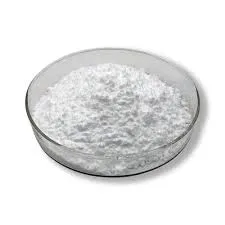
10月 . 11, 2024 03:31 Back to list
Enhancing Mortar Performance with Advanced Adhesive Additives for Superior Bonding
The Role of Mortar Adhesive Additives in Construction
In the rapidly evolving world of construction materials, the quest for improved performance, durability, and ease of application is a constant endeavor. One of the pivotal components that have transformed the effectiveness of traditional mortar is the use of adhesive additives. These mortar adhesive additives enhance the overall quality and versatility of mortar, making it an essential consideration for construction professionals and DIY enthusiasts alike.
What Are Mortar Adhesive Additives?
Mortar adhesive additives are specialized chemical formulations added to traditional mortar mixes to improve their bonding properties, workability, and overall performance. These additives can range from polymers and resins to various mineral products, each serving a specific purpose. The primary goal of these additives is to enhance the adhesion capabilities of the mortar, allowing it to bond more effectively with various substrates, including concrete, brick, stone, and tiles.
Benefits of Using Mortar Adhesive Additives
1. Enhanced Bonding Strength One of the main advantages of incorporating adhesive additives into mortar is the significant improvement in bonding strength. This enhanced adhesion is crucial in applications such as tile installation, where a strong bond is necessary to prevent cracking or delamination over time.
2. Improved Workability Mortar mixed with adhesive additives often exhibits better workability. This means that it can be spread more easily, allowing for smoother finishes and reduced labor time. Workers can manipulate the mortar with greater precision, which is particularly beneficial in complex tiling or masonry projects.
3. Water Resistance Many adhesive additives provide improved water resistance, which is essential in areas exposed to moisture, such as bathrooms and kitchens. This property helps prevent water infiltration, which can lead to mold growth and structural damage.
4. Flexibility and Elasticity Some additives make the mortar more flexible, allowing it to absorb movements in the substrate without cracking. This is particularly important in regions prone to temperature fluctuations and seismic activity.
mortar adhesive additive

5. Durability The long-term durability of constructions relies heavily on the materials used. Mortar with adhesive additives can resist environmental stressors, making it suitable for use in demanding conditions, such as outdoor projects or areas with heavy foot traffic.
Application of Mortar Adhesive Additives
The application of mortar adhesive additives is straightforward but requires careful consideration of the mix ratios and the specific requirements of each project. For instance, when preparing a tile adhesive mix, the right proportion of additive to mortar can significantly affect the outcome. Typically, manufacturers provide guidelines for the optimal mixing ratios to achieve the desired performance.
Different types of adhesive additives are available, catering to specific needs
- Polymer-Based Additives These are widely used in tile adhesives and thin-set mortars. They enhance bonding and flexibility and improve the overall properties of the mortar. - Hydraulic Additives Often used in areas where fast-setting is crucial, these additives can accelerate curing times while maintaining strong bonds.
- Anti-shrinkage Additives These help minimize cracking and shrinkage during setting, ensuring a more stable and reliable final product.
Conclusion
Incorporating mortar adhesive additives into construction projects can lead to increased longevity, improved performance, and reduced maintenance costs. As building techniques and materials continue to advance, the strategic use of these additives becomes imperative in achieving high-quality results. Construction professionals, architects, and DIY enthusiasts are encouraged to explore the potential of mortar adhesive additives to enhance their projects, ensuring that their structures not only meet but exceed industry standards for quality and durability. In conclusion, investing in the right mortar adhesive additives is a small step that can lead to significant benefits in construction.
-
The Widespread Application of Redispersible Powder in Construction and Building Materials
NewsMay.16,2025
-
The Widespread Application of Hpmc in the Detergent Industry
NewsMay.16,2025
-
The Main Applications of Hydroxyethyl Cellulose in Paints and Coatings
NewsMay.16,2025
-
Mortar Bonding Agent: the Key to Enhancing the Adhesion Between New and Old Mortar Layers and Between Mortar and Different Substrates
NewsMay.16,2025
-
HPMC: Application as a thickener and excipient
NewsMay.16,2025
-
Hec Cellulose Cellulose: Multi functional dispersants and high-efficiency thickeners
NewsMay.16,2025







